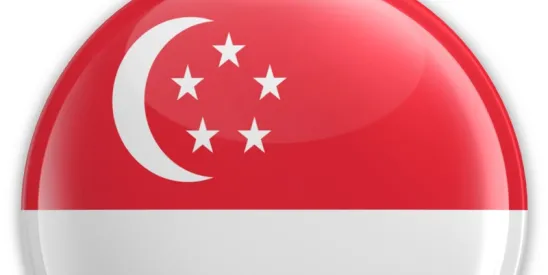As the second half of 2019 approaches, Singapore businesses and overseas service providers should take note of the pending changes to Singapore’s Goods and Services Tax (GST).
As part of its effort to achieve parity in GST treatment for all services consumed in Singapore, the Minister of Finance announced in the Budget 2018 that effective from January 1, 2020, consumers and businesses that purchase services from suppliers based overseas that do not have a physical presence in Singapore may have to pay GST on those imported services.
The GST may be levied on business-to-business services (B2B), such as marketing services, accounting services, and IT services; and business-to-consumers services (B2C), which include video and music streaming services, applications and online subscription fees. The measures are only intended to apply where the relevant service would be subject to the general GST rate if supplied locally in Singapore. Accordingly, the measures will not apply to intangible services that are otherwise exempt from GST, including most financing transactions.
GST levied on GST registered businesses will use a reverse-charge mechanism for imported services, while the GST on imported services supplied to consumers and non-GST registered businesses will be through an Overseas Vendor Registration (OVR) system.
- Under the reverse-charge mechanism, when a supplier located outside Singapore makes a B2B supply of services to a GST-registered person in Singapore, the GST-registered recipient may be required to account for GST on the value of the imported services as if that recipient was the supplier. If the reverse-charge applies, the GST-registered recipient would be allowed to claim the GST as their input tax, subject to the normal input tax recovery rules.
The reverse charge mechanism will generally only apply where the GST registered business customer is not entitled to a full input tax credit for the imported services. It will generally not apply where the GST registered business customer is entitled to a full credit for the service, unless the customer voluntarily elects to apply the reverse charge.
It should be noted the reverse charge may potentially apply to transactions that would typically be disregarded for GST purposes. This may include inter-branch transactions, as well as transactions between members of a GST group.
A recipient of imported services who is currently not GST-registered may need to register itself because of the reverse-charge rules if its acquisitions of imported services will exceed S$1 million in a 12 month period.
- Under the OVR system for services supplied to consumers or non-GST registered businesses, overseas services providers whose annual global turnover exceeds S$1 million and who makes more than S$100,000 in the sale of digital services to consumers in Singapore may be required to register and pay GST.
If services are provided through electronic marketplaces, the operators of the electronic marketplaces are liable to charge and account for GST instead of the service provider.
In view of this pending GST change, Singapore companies that currently have contracts with overseas companies for the provision of marketing and other services will need to determine if the GST-reverse charge mechanism may apply. There may also be benefits to reviewing existing contracts to account for the new GST requirements.
Overseas suppliers that provide services to businesses and consumers in Singapore will also need to consider the implications of these changes. In particular, they will need to consider whether it will be necessary to register under the OVR system. Those overseas suppliers that do not intend to register under the OVR system may need to collect additional information from customers so that, in the event of an audit, they can demonstrate all their customers are GST registered businesses.




 />i
/>i

